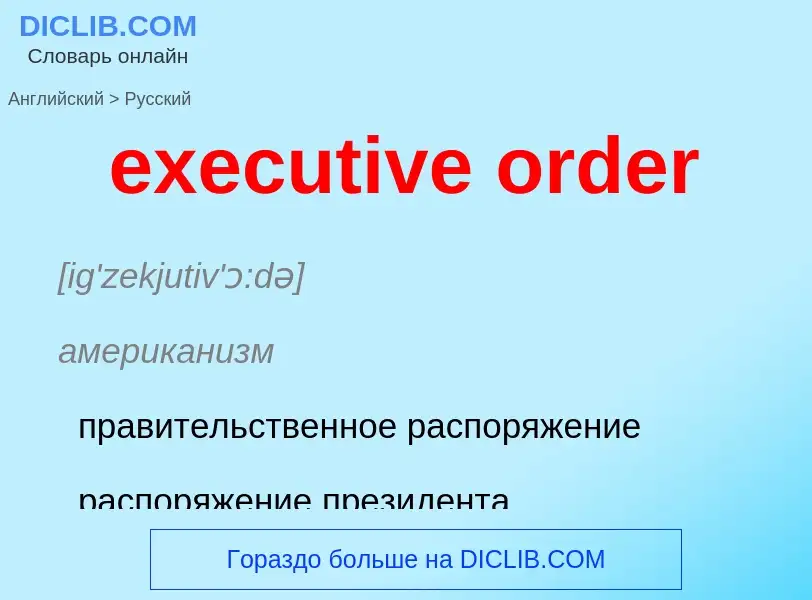Traducción y análisis de palabras por inteligencia artificial ChatGPT
En esta página puede obtener un análisis detallado de una palabra o frase, producido utilizando la mejor tecnología de inteligencia artificial hasta la fecha:
- cómo se usa la palabra
- frecuencia de uso
- se utiliza con más frecuencia en el habla oral o escrita
- opciones de traducción
- ejemplos de uso (varias frases con traducción)
- etimología
executive order - traducción al ruso
[ig'zekjutiv'ɔ:də]
американизм
правительственное распоряжение
распоряжение президента
приказ президента
исполнительный приказ (директива исполнительной власти)
Definición
Wikipedia

In the United States, an executive order is a directive by the president of the United States that manages operations of the federal government. The legal or constitutional basis for executive orders has multiple sources. Article Two of the United States Constitution gives presidents broad executive and enforcement authority to use their discretion to determine how to enforce the law or to otherwise manage the resources and staff of the executive branch. The ability to make such orders is also based on expressed or implied Acts of Congress that delegate to the president some degree of discretionary power (delegated legislation). The vast majority of executive orders are proposed by federal agencies before being issued by the president.
Like both legislative statutes and the regulations promulgated by government agencies, executive orders are subject to judicial review and may be overturned if the orders lack support by statute or the Constitution. Some policy initiatives require approval by the legislative branch, but executive orders have significant influence over the internal affairs of government, deciding how and to what degree legislation will be enforced, dealing with emergencies, waging wars, and in general fine-tuning policy choices in the implementation of broad statutes. As the head of state and head of government of the United States, as well as commander-in-chief of the United States Armed Forces, only the President of the United States can issue an executive order.
Presidential executive orders, once issued, remain in force until they are canceled, revoked, adjudicated unlawful, or expire on their terms. At any time, the president may revoke, modify or make exceptions from any executive order, whether the order was made by the current president or a predecessor. Typically, a new president reviews in-force executive orders in the first few weeks in office.


